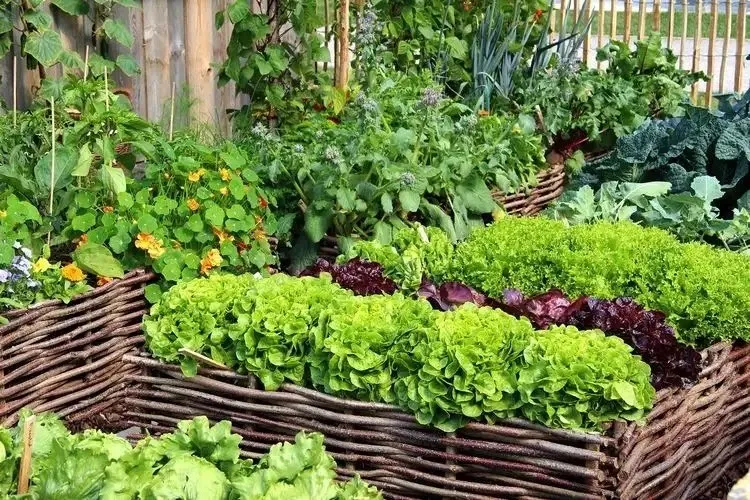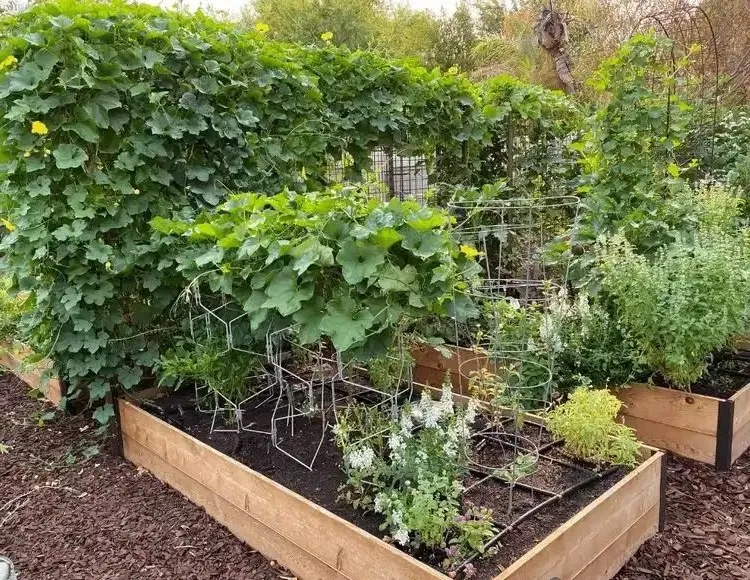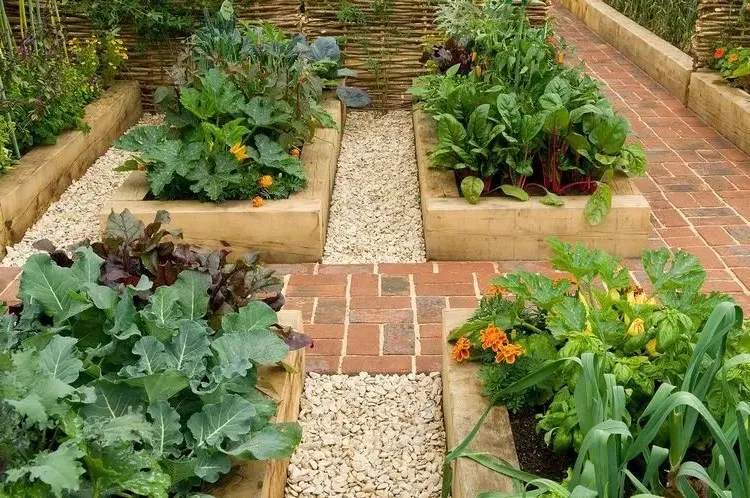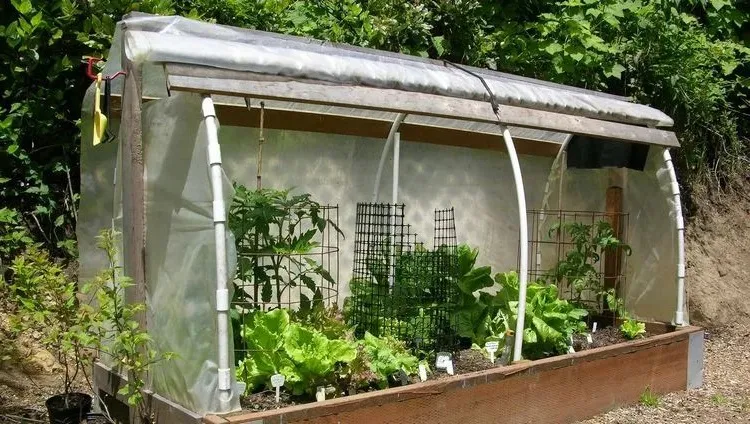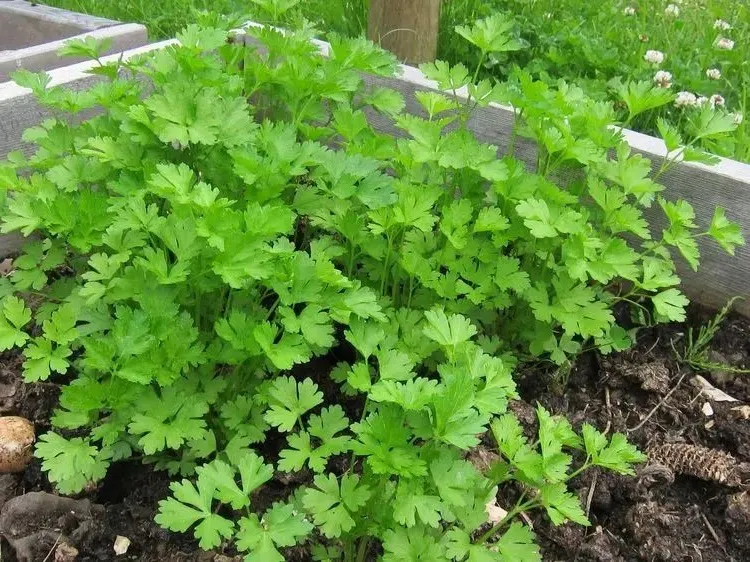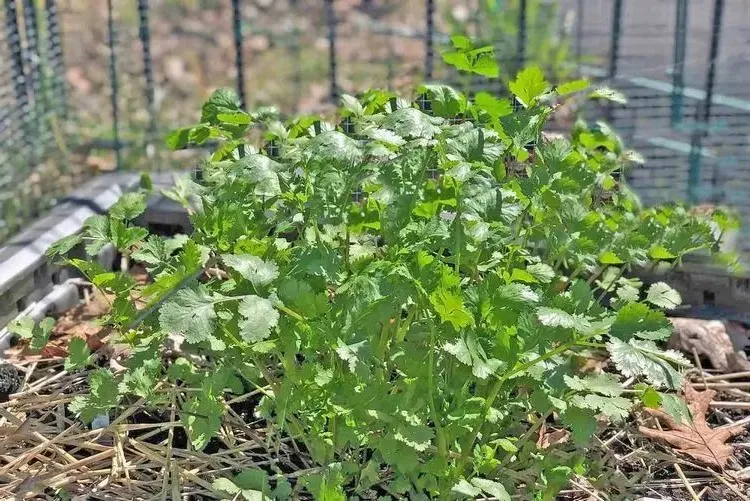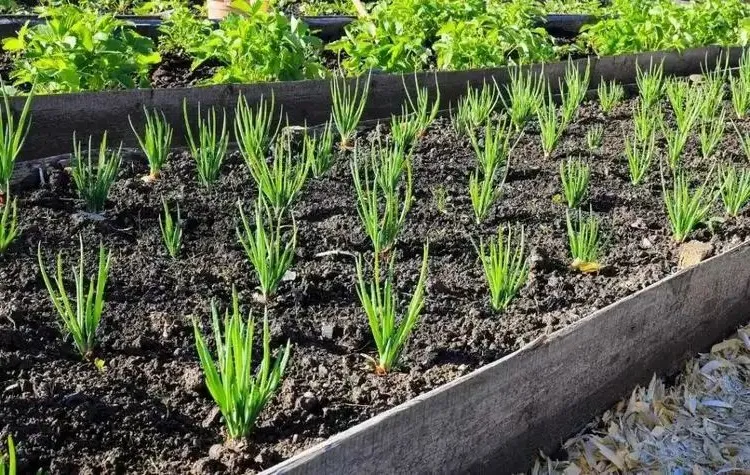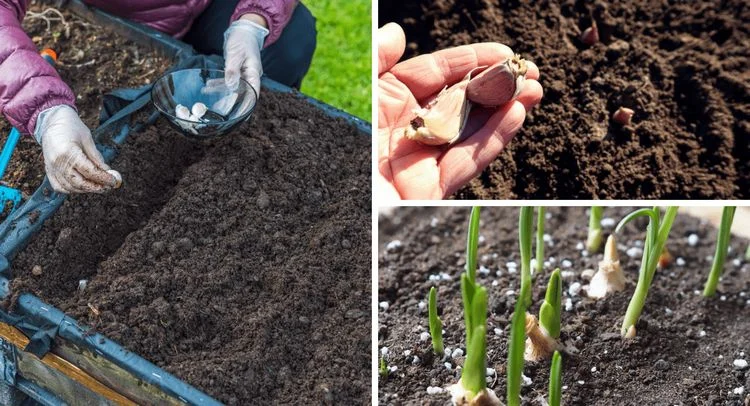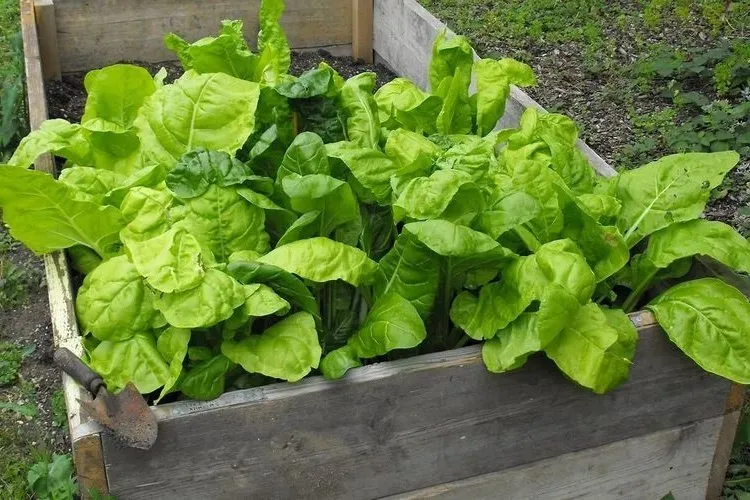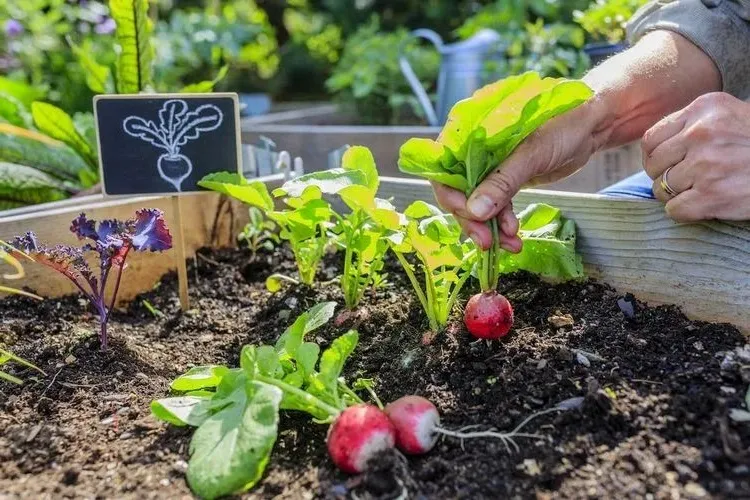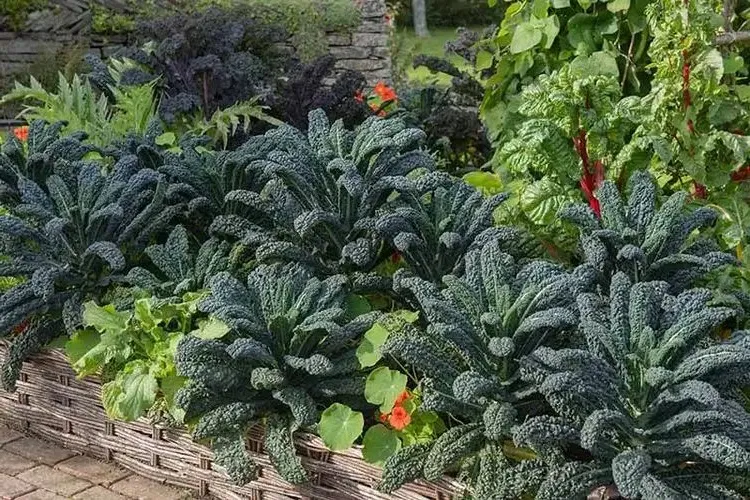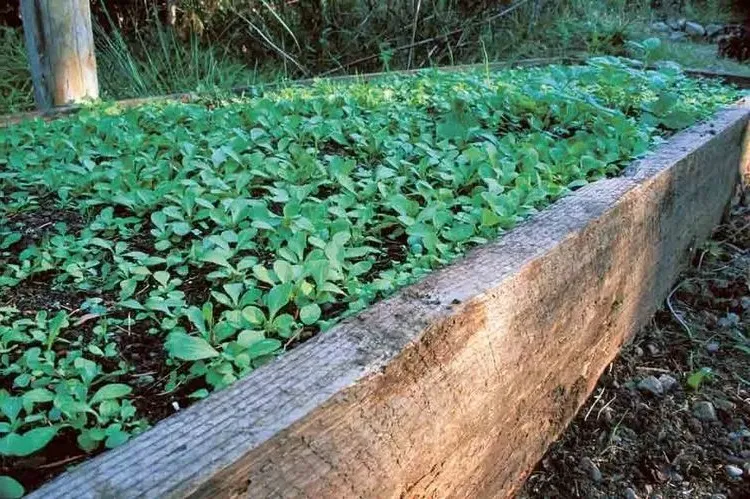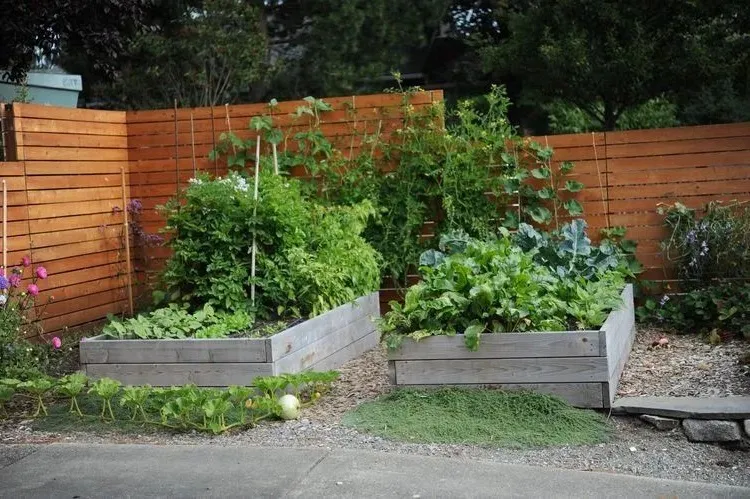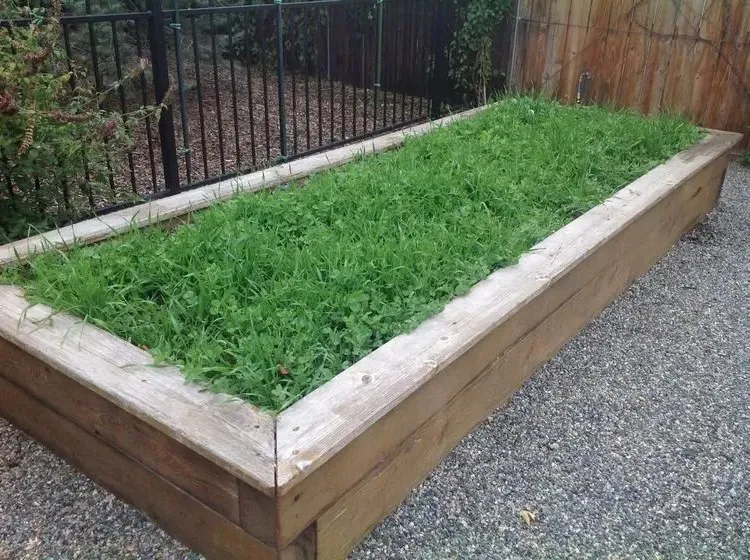Looking for September planting suggestions? The best time to get into the garden and start planting for the next season is now, as we enjoy the remaining warm days of late summer and the main growing season is gradually slowing down.
September, when temperatures start to drop and the days get shorter, is the ideal time to plant a variety of new plants. How to plant a raised bed in September? Discover ideas and tips below!
When and How to Plant a Raised Bed in September?
To prepare your fall garden, it’s a good idea to find out about the average date of the first frost in your area. To calculate when to sow your seeds, you must first check how long each vegetable takes to mature, and then subtract that number of days from the average date of the first frost. The seed packets usually contain information on the ripening period.
Raised Bed Fall Planting – Vegetables and Herbs
The month of September is ideal for planting different types of vegetables and herbs. Vegetables planted in a raised bed during the fall and winter season will thrive. The raised bed is warmer than the soil below because it’s raised off the ground and has been covered with compost and other organic materials. Vegetables can be planted more densely in a raised bed because they are better protected from frost and the nutrient density is higher than in a conventional vegetable garden.
It’s not too late to prepare for a late harvest if you enjoy eating home-grown foods. After all, having your own garden or even just a simple balcony one can provide you with the freshest produce. As the days get shorter, it’s important to replenish vitamin reserves with vegetables. Plus, you can rest assured that the vegetables haven’t been exposed to any dangerous chemicals.
The Ideal Growing Conditions for a Raised Bed in September
The rapid drop in temperature during fall might surprise you. Temperatures drop quickly, especially after sunset. Plants need to be protected from the cold and wet before this can happen. It is therefore important to cover the raised beds in fall and winter. If you want to keep the heat in and rain out, you need a sturdy roof, a poly tunnel, or at least fleece.
Also, vegetables should not be harvested in cold weather. Otherwise, they may become mushy or soft after defrosting. Brussels sprouts and kale are the only ones able to withstand low temperatures down to a freezing point during the growing phase. Only then does their taste fully unfold. However, they are only harvested at temperatures above zero.
What Else Can You Plant in a Raised Bed in September? Parsley
Parsley is one of the most commonly used herbs in European cuisine. Using it would be much more pleasant if you can harvest the leaves outside in the fresh air on a balcony, terrace or in the garden. Keep in mind that parsley should never be grown in the same spot from year to year. This will prevent the plant from attracting unwanted pests or diseases.
Also read: When to Plant Tulip Bulbs? Which Varieties to Choose? Learn Now
How to Plant a Raised Bed in September for Coriander
Coriander is a popular ingredient that adds a unique, savoury flavour to any dish. It is a low-maintenance plant that can be planted in the ground in September. Choose a spot close to the kitchen, so you can harvest a handful of leaves from this versatile herb frequently. Planting small amounts of seeds regularly is ideal.
Plant Spring Onions in Raised Beds in September
Planting spring onions now can give you a nice head start on your spring harvest. Familiarize yourself with growing spring onions by sowing the seeds in a seed tray and moving the seedlings to their final location once they have reached a manageable size. Spring onions are among the easiest plants to grow.
Grow Garlic in a Raised Bed in Early Fall
Garlic is a profitable crop because of its diverse culinary uses. Garlic needs a long growing season to thrive. Therefore, if you plant it in September, you will have a rich harvest later. If you plant the garlic cloves in fall, it will take about 10 months before you can harvest the bulbs and replenish supplies of this essential kitchen ingredient.
Plant the cloves 15 centimetres apart in rows 30 centimetres just below the surface of the soil. Once you’ve produced your own flavourful garlic cloves, be sure you know how to store garlic properly to keep it fresh.
Also read: When & How to Plant Ornamental Garlic? Care Guide for Alliums
Planting Hardy Spinach in September
Hardy spinach varieties are easy to grow and produce well throughout winter. Successfully growing spinach begins with enriching the soil with quality garden compost. You can never have too much compost in your garden. You can harvest fresh spinach leaves after just 6–10 weeks. Growing spinach in pots is also a good option.
Radishes for Your Raised Bed Gardening in Fall
Radishes are a versatile vegetable that can be eaten raw in salads or roasted for a milder, earthier flavour. The radishes harvested in fall are often larger and of better quality.
A quick and easy fall crop, radishes require little more than a sunny spot in moist, well-drained soil. They can even thrive in a variety of soil types. The best time to sow radishes is around September. Because radishes mature quickly, you can sow a few seeds frequently and enjoy a consistent harvest during the cooler months. You can tell when radishes are ripe by certain signs. Radishes are also one of the easiest vegetables to grow.
Kale Is a Must in Your Fall Garden
Plant kale from mid-May in slightly alkaline soils to get a winter seed. It is usually frost-resistant, but you should still take precautions to keep the snow off the leaves if you don’t want them damaged.
Sow Lamb’s Lettuce in September
One of the most successful winter crops is lamb’s lettuce. The plants form clusters of leaves 5 to 10 centimetres in diameter, which are harvested in one piece by cutting off the stem at ground level. The rosettes are used in a salad after a quick rinse and a little dressing.
You can also plant these types of vegetables in a raised bed in September:
- Lettuce
- Leek
- Winter purslane
- Arugula
- Chinese cabbage
- Kohlrabi
- Broccoli
- Radicchio
- Winter lettuces
- Winter peas
- Endive
- Frisee
- Winter cress
- Garden cress
- Winter broad bean
- Celery
- Carrot
- Fennel
- Chard
- Beetroot
- Parsnip
- Chervil beet
- Turnip
Green Manure Instead of Growing Vegetables
If you would rather do something helpful for your raised beds and the soil organisms that live in them, you need green manure – hardy plants such as winter vetch, mustard, clover, sainfoin or other green manure plants can be planted in your raised bed instead of leaving the bed empty or growing vegetable plants in it over the winter. Green manure plants are grown specifically so that they can be cut and dug under in early spring – they are a perfect fertiliser.

